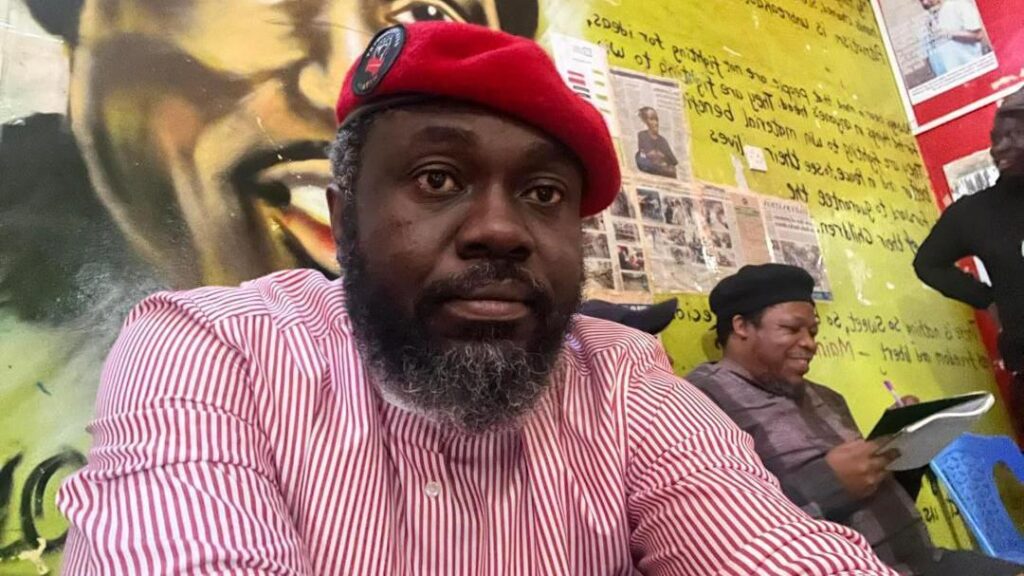A Ghanaian activist who was arrested over the weekend for organising a three-day protest against illegal mining has been rushed to hospital for emergency medical care.
According to Oliver Barker-Vormawor’s legal team, he did not receive timely medical attention from police after he said on Tuesday that he was “seriously ill”.
The Ghanaian police deny the accusation, saying Mr Vormawor and another protester are in custody and being treated at the police hospital.
Illegal gold mining, known locally as galamsey, is common in Ghana and is responsible for polluting over 60% of Ghanaian waters.
The activist, educated at the UK’s prestigious Cambridge University, was arrested along with more than 40 others over the weekend after clashing with police. He was due to appear in court on Wednesday.
Some protesters have said they have not been given food or water since their arrest on Saturday. Police have not commented.
Mr Vormawor also helped organise a similar demonstration last year under the hashtag #FixTheCountry to protest the cost of living crisis.
On Tuesday, a court in Ghana remanded 39 of the protesters in custody, while 11 of them will remain in jail for two weeks.
A group of lawyers have filed a petition with the Commission for Human Rights and Administrative Justice against the police for violating the rights of the protesters.
Many Ghanaians have condemned the arrest and continued detention of the protesters and are demanding their immediate release, using the hashtag #FreeTheCitizens, which is now trending on social media.
One of the lawyers representing the protesters, Prince Ganaku, expressed shock at the treatment they received.
“The behaviour of the police is reminiscent of the time of military rule, when human rights were only considered a suggestion,” he told the BBC.
Many demonstrators wanted to protest against illegal mining because of the threat it poses.
Illegal mining has forced the country’s water company to close water treatment plants and ration water in parts of southern Ghana.
Analysts say the country could be importing water as early as 2030 if nothing is done to address the problem.
President Nana Akufo-Addo has ordered the deployment of police and military to tackle illegal miners. A similar approach was used in 2017 but failed to solve the problem.
BBC investigations found that most illegal miners had moved their operations to the dead of night, hampering efforts to crack down on the miners.
More Ghana stories from the BBC:


Go to BBCAfrica.com for more news from the African continent.
Follow us on Twitter @BBCAfricaon Facebook on BBC Africa or on Instagram at bbcafrica
BBC Africa Podcasts







